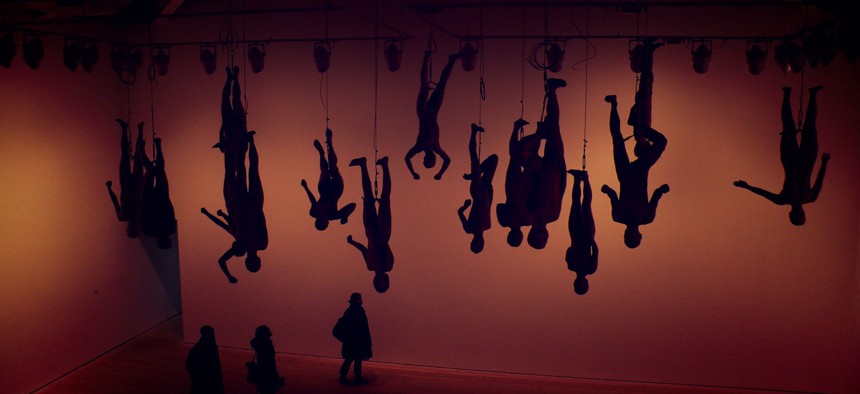
Mariano Ruffa/Pexels.com
Acting Territorial Kills Creative Feedback
Managers work hard to foster creativity in the workplace, but "territorial marking" can squash the free flow of ideas among colleagues.
Managers work hard to foster creativity in the workplace, but “territorial marking” can squash the free flow of ideas among colleagues, according to new research.
“We are not talking about putting up walls or physically de-marking a space,” says Markus Baer, associate professor of organizational behavior at the Olin Business School at Washington University in St. Louis.
“Territorial marking comes in all sizes and shapes. However, just saying, ‘I consider this to be my idea,’ when asking others for their input can have far-reaching consequences for collaboration.”
Baer and his coauthor, Graham Brown of the University of Victoria, conducted two research studies. They found when a person claims an idea as her or his own in the workplace, it’s likely a sign of that person’s deep sense of ownership. However, in a professional context that stresses creativity and collaboration, that territorial marking discourages creative, constructive feedback from coworkers.
The researchers showed that when someone marks an idea and then presents it to others, less creative feedback is provided. Marking made it less likely that others felt a sense of responsibility associated with the concept’s outcome, and so lost motivation to provide input. Not only does this stifle creativity, it also can limit the idea’s full potential when the input from others is not taken into account.
“The first idea is rarely the best,” Baer says. “Creative ideas have to be nurtured and developed and this often happens in the context of collaborating with others. However, when all the credit goes to the person who has the original idea, they will try to signal their ownership of it. Naturally, this makes other people less motivated to contribute and can squelch the creativity of their comments and suggestions.
“In this way, the original idea may never be developed to its fullest potential,” Baer says.
So, what’s the takeaway from the “mine vs. ours” creativity-killer? Baer says it’s all in the approach when presenting ideas.
“What you want is an environment in which offering creative feedback is valued as much as having the original idea,” he says. “The credit has to be shared equally.
“Marking our ideas only has benefits when those we seek out for feedback are more concerned with pleasing us, or are preoccupied with maintaining a positive relationship with us.”
This article was originally published in Futurity. Edits have been made to this republication. It has been republished under the Attribution 4.0 International license .






